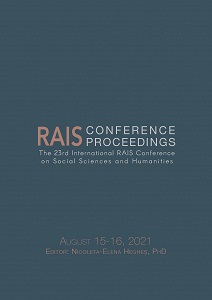Climate Growth Theory
Climate Growth Theory
Author(s): Julia M. Puaschunder
Subject(s): Economic development, Environmental interactions
Published by: Scientia Moralitas Research Institute
Keywords: Climate Change; Economics of the Environment; Endogenous Growth Theory;
Summary/Abstract: The climate change crisis has gained unprecedented urgency in the most recent decade. Overall, climate change has already led to and will continuously lead to environmental tipping points and irreversible lock-ins that will decrease the overall productivity and common welfare. When taking a closer look at the macroeconomic growth prospects as measured in Gross Domestic Product (GDP) per country, a changing climate will affect countries differently, when considering different mean temperatures but also differences in the GDP sector composition per country and a differing peak temperature at which a GDP sector can be most productive. In the first economic ‘classic’ theories of Adam Smith, Thomas Robert Malthus, David Ricardo, Karl Marx and Joseph Schumpeter land productivity was considered as an underlying growth driver. In the evolution of Modern Growth Theory (MGT), these theories and insights got abandoned. With climate change pressuring economic productivity and the rising impact of global warming expected to determine economic output more and more so in the future, this paper calls for a reintegration of climate and temperature into standard growth theory. In light of the enormous effect of temperature and climate on economic productivity that is likely to rise in the years to come but also with reference to the highly unequally distributed economic winning and losing prospects in-between countries and over time, this article argues for an integration of temperature and climate in contemporary Growth Theory, called Climate Growth Theory. Micro- and macroeconomic attempts to integrate productivity differences between countries based on energy supply, climate and overall favorable working conditions will be presented alongside most recent models to integrate temperature and climate into macroeconomic growth models and sustainable consumption patterns.
Book: Proceedings of the 23rd International RAIS Conference on Social Sciences and Humanities
- Page Range: 13-25
- Page Count: 13
- Publication Year: 2021
- Language: English
- Content File-PDF

